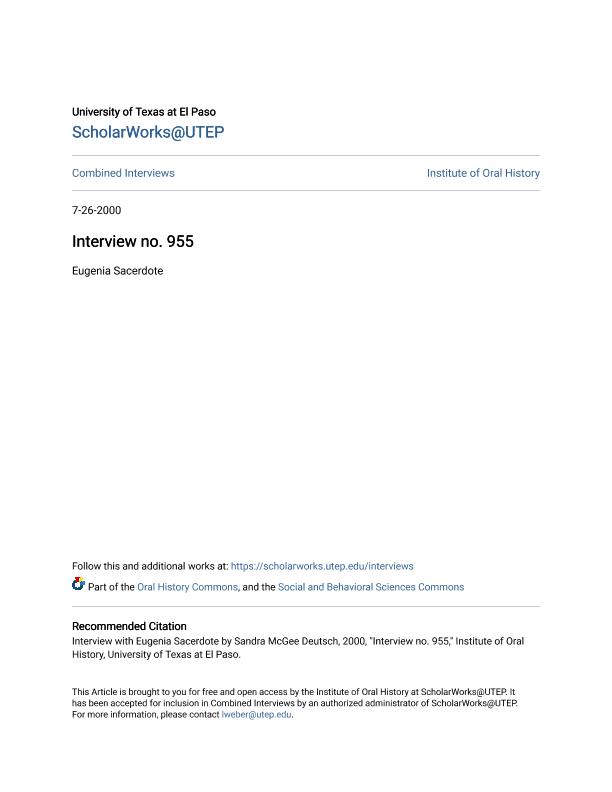Transcripción
Interview with Eugenia Sacerdote by Sandra McGee Deutsch
Año de la publicación:
2000-07-26
Idioma:
Español
Páginas:
1-30
Subtipo:
Transcripción
Clasificación temática:
Resumen
Born in Turin in 1910. Very antifascist- saw Peronism as reply to fascism. Father died when she was about 10 years old so, was brought up by mother. Women couldn't study at that time, so she attended the Liceo Femenino, which didn't feed into the university, and then stayed home for a year. She and her cousin, who would go on to win a Nobel Prize, and who was brought up in an even more restricted fashion, studied for one year to be able to pass certain courses to get into the university. She experienced much prejudice in medical school, but persevered and got her degree. lnl936 she finished her thesis (doctoral) and in 1937 passed her test to practice medicine. With the racial laws of 1938, she and her family lost their jobs and had to leave. They came to Argentina, went to BrazTl, and then returned to Argentina for good. After WWII, they wanted to return to Italy , but they feared the Korean War might turn into a world war, and so they decided to stay in Argentina. She worked in the Facultad de Medicina atvarious times (under Frondizi as professor), at Instituto Rolfo various times, and at Instituto Malbrdn. Became a famous researcher in histology. It was difficult for her to adjust to life here, with changes in language, food, and separation from family, especially. Did experience antisemitism sometime, but generally treated well.
Palabras clave:
ENTREVISTA
,
SACERDOTE DE LUSTIG
,
HOJA DE VIDA
,
SACERDOTE INVESTIGADORA
Archivos asociados
Licencia
Identificadores
Colecciones
Libros, folletos y pliegos impresos (Eugenia Sacerdote)
Libros, folletos y pliegos impresos (Eugenia Sacerdote)
Libros, folletos y pliegos impresos (Eugenia Sacerdote)
Citación
Sacerdote de Lustig, Eugenia; McGee Deutsch, Sandra; 26-7-2000; Interview with Eugenia Sacerdote by Sandra McGee Deutsch; 1-30
Compartir




